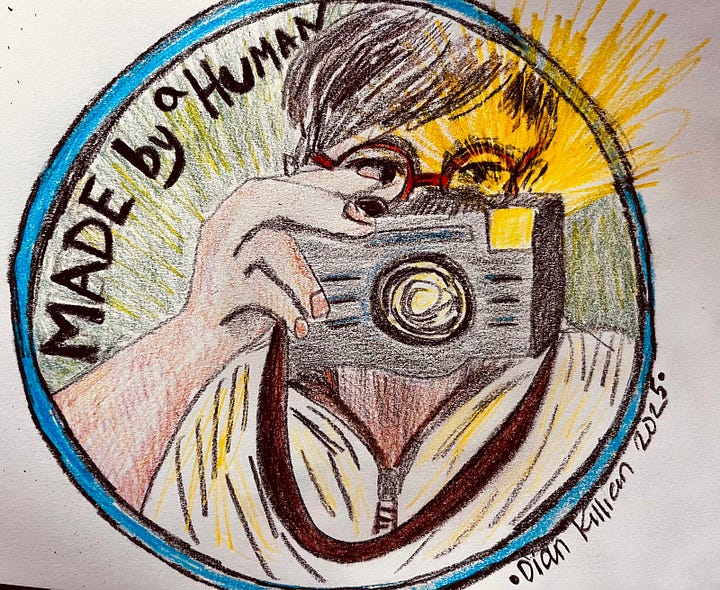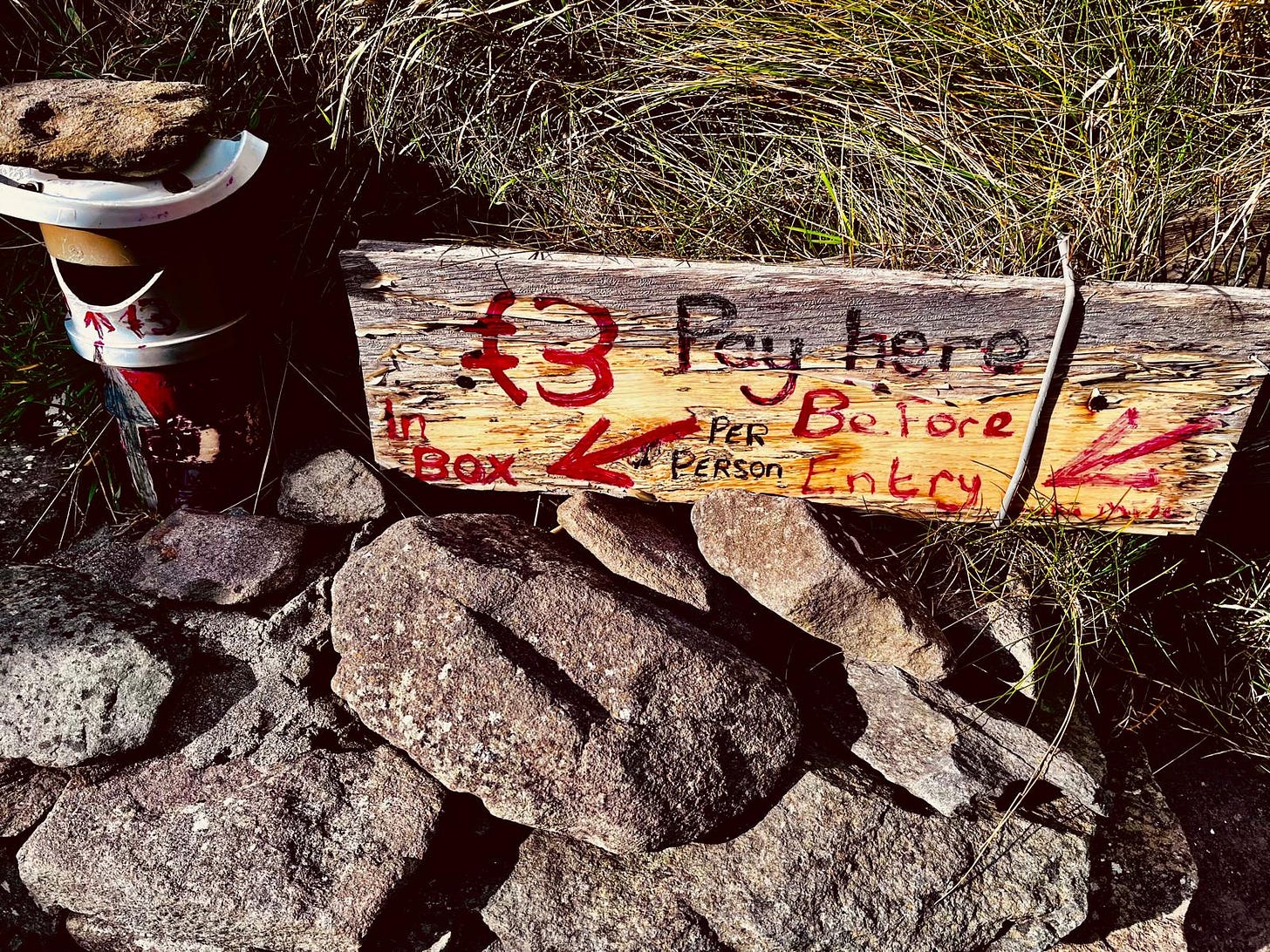In A World of ‘Please’ and ‘Thank You’, I discuss how Marshall Rosenberg, the creator of Nonviolent Communication (NVC), often said that everything we humans say is some form of either “please” or “thank you.” I then explore how le do thoil, the way you say “please” in Irish—literally, “with your will/ingness”—is highly consistent with NVC principles about making genuine requests. When making a true request, we are open to hearing “no” since we’re seeking genuine agreement rather than a “yes” from obligation or demand. This is why the tagline for requests in NVC is very similiar to le do thoil: “Are you willing…?”
In today’s blog I am going to focus on “thank you” and gratitude. Once again, it is inspiring what the Irish language can teach us.
“…gratitude is strongly and consistently associated with greater happiness. Gratitude helps people feel more positive emotions, relish good experiences, improve their health, deal with adversity, and build strong relationships.” —Harvard Medical School
All the research shows what we already know: gratitude is good for us. The short and long term impacts are even greater than we might expect. In one study, after writing down gratitudes for ten weeks, participants were “more optimistic and felt better about their lives. […] they also exercised more and had fewer visits to physicians than those who focused on sources of aggravation.” When a research group was asked to “write and personally deliver a letter of gratitude to someone who had never been properly thanked for his or her kindness, participants immediately exhibited a huge increase in happiness scores. This impact was greater than that from any other intervention, with benefits lasting for a month.” In another study, “couples found that individuals who took time to express gratitude for their partner not only felt more positive toward the other person, but also felt more comfortable expressing concerns about their relationship” (Harvard Medical School).
Gratitude also supports interdependence and collaboration:
“If a person experiences gratitude, they are more likely to recognize the help and then later reciprocate that help (Wood et al., 2010). People who are thanked are presumably more apt to extend help to others in the future.” (Positive Psychology )
This would suggest that gratitude is a key and, I would say, overlooked element in the workplace—impacting cooperation and morale.
Gratitude seems part of our collective wisdom. It is, in the form of devotion and worship, integral to faith and spiritual traditions, from indigenous practices (such as the Thanksgiving Address of the Haudenosaunee people), to Bhakti yoga, the Modeh Ani of Judaism, to hymns and prayers of praise in Christianty and Quaker meeting for “worship.” That gratitude occurs across so many traditions suggests that we intrinsically understand its importance to community and well being. This connection to spiritual wisdom reflects the two stages of gratitude:
“In a state of gratitude, we say yes to life. We affirm that, all in all, life is good and has elements that make it worth living. The acknowledgment that we have received something gratifies us, both by its presence and by the effort the giver put into choosing it. Second, gratitude is recognizing that sources of this goodness lie outside the self. One can be grateful to our creator, other people, animals, and the world, …” —Positive Psychology
In effect, gratitude connects us to forces larger than ourselves and fosters an awareness of benevolence and interdependence.
My grandfather always used to say, “Think positive.” When I was younger, I found it glib. Now I see it as a form of forward-thinking gratitude. Thinking positive is anticipating the benevolence of life—a goodness ultimately revealing the interdependent web of giving and receiving. Marshall Rosenberg also spoke about the importance of gratitude. He called gratitude “life fuel” and encouraged keeping a gratitude journal. Gratitude is key to Nonviolent Communication because the underlying principle of NVC is about discovering how we can best contribute to meeting everyone’s needs. Gratitude celebrates when this contribution occurs.
Yet there is also a dark side to gratitude or at least the concept of “thank you.” Similar to words in English to do with relationships (see, What’s Love Got to Do with It?) there is an underlying economic exchange and disparity. In English, “thank you” comes from “think” and ultimately from the Latin word “know.” It was originally short for, “I think I will remember this”—as in remembering a debt:
“Like so many of our everyday courtesies, it is a kind of democratization of what was once a habit of feudal deference: the insistence on treating absolutely everyone the way that one used only to have to treat a lord or similar hierarchical superior.” (David Graeber)
This is explicit in other European languages:
“…the Portuguese obrigado is a good example) the standard term follows the form of the English “much obliged”—it actually does means “I am in your debt.” The French merci is even more graphic: it derives from “mercy,” as in begging for mercy; by saying it you are symbolically placing yourself in your benefactor’s power—since a debtor is, after all, a criminal. (David Graeber)
“Much obliged” had always seemed quaint and genteel to me. Now I see how literal it is. When you say “much obliged,” you are literally acknowledging an obligation.
“You’re welcome”—the common, polite response to “thank you,” also reveals a history of deference and debt:
“Saying “you’re welcome,” or “it’s nothing” (French de rien, Spanish de nada)— the latter has at least the advantage of often being literally true — is a way of reassuring […] that you are not actually inscribing a debit in your imaginary moral account book. (David Graeber).
In turn, “my pleasure,” is in effect reassuring the person that there is no debt to track.
This idea of debt in human relationships is relatively new and came from commerce. Now it has extended to every aspect of our lives:
The habit of always saying “please” and “thank you” first began to take hold during the commercial revolution of the sixteenth and seventeenth centuries — among those very middle classes who were largely responsible for it. It is the language of bureaus, shops, and offices, and over the course of the last five hundred years it has spread across the world along with them. It is also merely one token of a much larger philosophy, a set of assumptions of what humans are and what they owe one another, that have by now become so deeply ingrained that we cannot see them.
On one level, “thank you” today is simply a social formality. Yet knowing its origin can raise our awareness. Are we giving and receiving out of deference, inequality or obligation, consciously or not? Or are we connected to abundance and interdependence? As humans, what does it mean to “owe” anyone anything?
In Irish, rather than saying “thank you” and naming a debt, you say, go raibh maith agat. This literally means, “may good/ness come (be “at”/to) you. Bringing in even more abundance and generosity, the way you add “very,” as in “thank you very much” is, go raibh míle maith agat, a thousand good/ness(es) to/at you. If you want to say “very, very much,” you double the thousands: go raibh míle, míle maith agat. There is zero debt or obligation here—we are talking about goodness, not goods. When saying “goodness to you,” we are brought back to the heart of gratitude: benevolence and a gift economy of interdependence and joyful giving and receiving. In Hiberno-English (the dialect of English spoken in Ireland), it’s common to hear, “thanks a mil.” Like so much that’s distinctive and endearing about Hiberno-English, this comes I am sure directly from Irish.
The greatest way to express thanks as Gaeilge is to say. go bhfága Dia an tsláinte agat, “may God leave you your health” or long may you be healthy. This is not said trivially. “It is for occasions of great and sincere thanks” (machnamh). Good health is the ultimate form of abundance (“health is wealth,” as we say in English). It is again, at least to some extent, bigger than any of us; while we can take steps to support our health and well being, there are also aspects of grace—larger forces we can’t control.
You can also say in Irish, míle buíochas, “a thousand gratitudes” on you. This expression goes back again to goodness, buíoch coming from the Old Irish, buide, meaning “good will and gratitude.” What I find especially compelling is that buide is related to the old Irish word for “yellow/ness” as well as honey or pollen. I like to think of gratitude, given in a genuine and heartfelt way, as being as sweet as honey—and as good for our health and well being. The abundance of “thank you” in Irish reminds me of “hello,” dia duit, where the goodness wished to someone—”God for/at you”—exponentially grows as more people join the conversation. But I will save the full version of that story, an scéal sin, for another day.
For now, míle buíochas for reading The Gaelic Effect. I hope this exploration of gratitude enriches your life and go bhfága Dia an tsláinte agat—may you experience health and well being. Today as I am writing, storm Éowyn is hitting Ireland, Scotland and even as far as Brittany, where I am currently traveling. I do wish for everyone well being, happiness and safety.
Ón mBriotáin inniu, (from Brittany today),
Dian
P.S. In the spirit of abundance and goodwill, if you’ve been reading The Gaelic Effect and it’s enriching your life, please consider becoming a paid subscriber. By doing so, you help in a very real way to keep this project going (and feeding the cats!). No obligation—just míle appreciation!
P.P.S. Today, each word as Gaeilge is hyperlinked to its pronunciation, when available and where it first appears. Irish is a highly relational language; spelling and pronunciation can change depending on how a word is used.











Dian,
Very enriching in a deep way to read your posts. I appreciate how you explore language from the lens of human relationships/community. Your photos add much warmth and light.
Pamela
Yes, this exploration of gratitude definitely enriched my life.
May you have a thousand thousand blessings of good health!
And may you stay safe from storms.
I found your take on being in debt especially intriguing, b/c I seem to remember Charles Eisenstein writing (maybe in Sacred Economics) that the idea of everyone being in debt to everyone else strengthened community. (As compared to when people who have money just pay for things and feel no sense of connection to the ones who are doing things for them.)
Thx for giving me some new ideas to reflect on. I love the way language can give insights into entire worldviews.